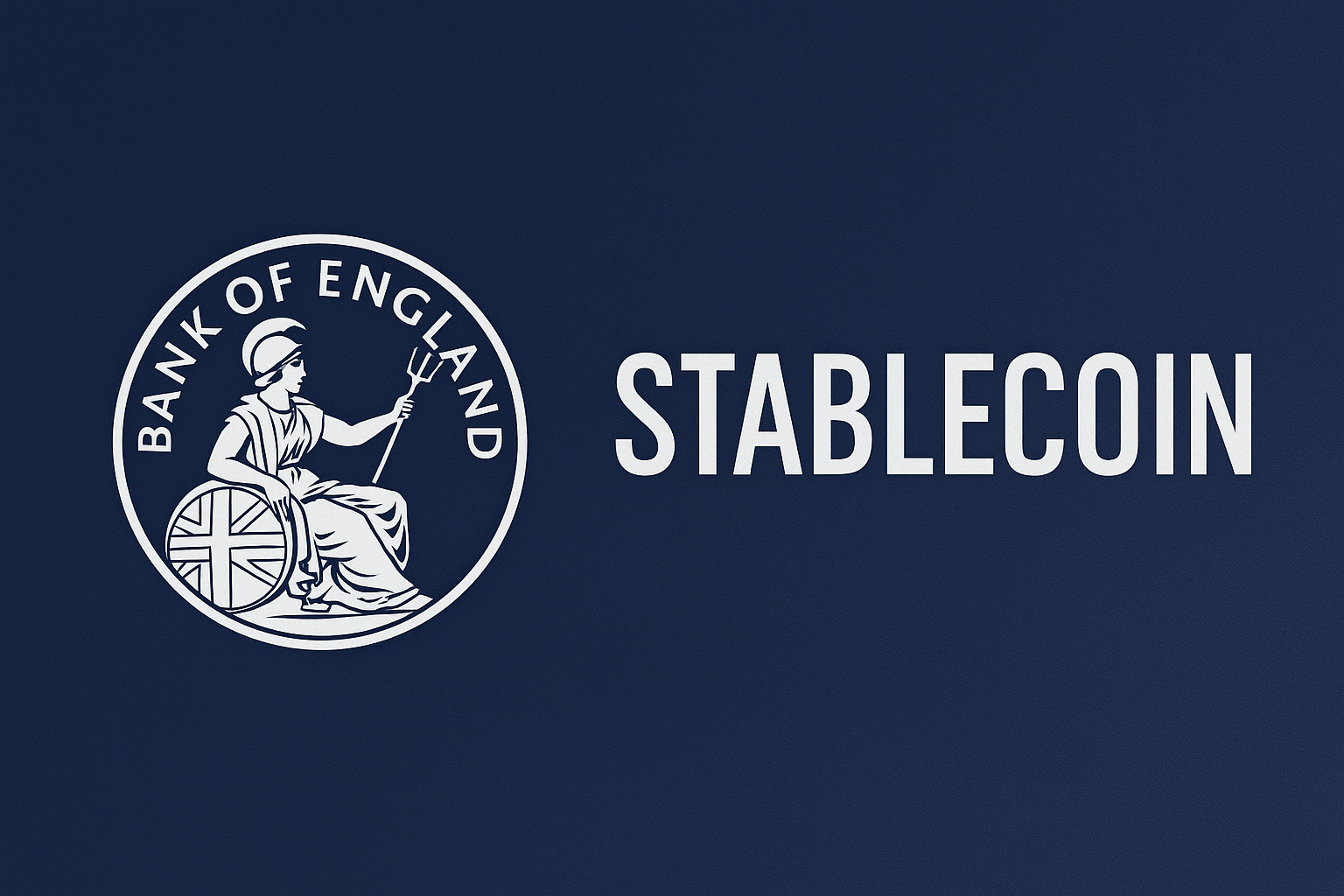Key Points:
-
BOE Deputy Governor Sarah Breeden said the U.K.’s stablecoin regime will launch “just as quickly as the U.S.,” with draft rules expected on Nov. 10.
-
The Bank of England plans to impose holding limits — £20,000 ($26,000) for individuals and £10 million ($12.9 million) for businesses — to safeguard banking stability.
-
Breeden cited differences in the U.K. mortgage market, which relies on commercial bank lending, as justification for tighter limits compared to the U.S. GENIUS Act approach.
The Bank of England (BOE) is preparing to introduce its long-awaited stablecoin regulatory framework, promising that the United Kingdom will not lag behind the United States in rolling out clear rules for the sector.
Speaking at a financial stability conference on Wednesday, Sarah Breeden, BOE Deputy Governor for Financial Stability, said the new regime would take effect “just as quickly as the U.S.,” addressing concerns that Britain risked falling behind in digital asset oversight.
“Our aim is to make sure that our regime is up and running, just as quickly as the U.S.,” Breeden told attendees, according to a Bloomberg report.
The announcement comes just months after the United States enacted the GENIUS Act, which created a federal framework for stablecoin issuance and reserve management. The BOE’s move marks a pivotal moment for the U.K. as it seeks to modernize its financial infrastructure and maintain London’s global competitiveness in fintech and blockchain innovation.
Holding Limits Expected for Stability
The Bank of England is expected to publish its proposed stablecoin rules on Nov. 10, with one of the most closely watched elements being caps on stablecoin holdings.
According to reports, the BOE will propose limits of £20,000 ($26,000) for individual users and £10 million ($12.9 million) for institutional or corporate accounts. These measures are designed to mitigate risks to commercial bank deposits, particularly in the U.K., where household credit and mortgage financing are heavily reliant on bank lending.
The approach contrasts with the U.S. model under the Guiding and Establishing National Innovation for U.S. Stablecoins (GENIUS) Act, which does not impose specific caps on holdings but emphasizes reserve transparency, 1:1 collateralization, and regular audits.
“People in the U.S. get their mortgages from Fannie and Freddie, and they’re funded in financial markets,” Breeden explained, referring to Fannie Mae and Freddie Mac. “People in the U.K. get their mortgages from commercial banks, and so that need for limits as we transition to a world of stablecoins is one that is less pertinent to the U.S. regime.”
Balancing Innovation and Financial Safety
Breeden’s remarks underscore the BOE’s effort to strike a balance between embracing financial innovation and safeguarding monetary stability.
While stablecoins — digital tokens pegged to fiat currencies like the pound or dollar — promise cheaper and faster payments, central banks worry they could undermine traditional bank funding models if left unchecked.
If households or firms were to move large sums into stablecoins, that could drain deposits from the commercial banking system, tightening credit conditions and threatening financial stability — particularly in a mortgage-driven economy like Britain’s.
“Stablecoins will have to meet the same standards of resilience, redemption, and transparency that the public expects from money issued by banks,” said Alexandra Grant, a London-based digital asset policy analyst. “But the BOE also knows innovation won’t wait forever, and Breeden’s comments show an urgency to act.”
Industry Response: Cautious Optimism
The U.K. crypto industry reacted cautiously but positively to Breeden’s statement. While some firms welcomed the promise of regulatory clarity, others expressed concern that holding caps could stifle institutional adoption.
“This is progress — but progress with caveats,” said James Bowden, head of policy at the Digital Finance Association U.K. “The holding limits might make sense for retail users, but for corporates and fintechs, they could limit stablecoins’ usefulness in cross-border payments and settlements.”
However, Bowden noted that the U.K.’s broader fintech environment remains strong, pointing to the Financial Services and Markets Act (FSMA) 2023, which already laid groundwork for stablecoin oversight. “The fact that the BOE is aligning its timeline with the U.S. means we’re entering a new phase of global stablecoin coordination,” he said.
What to Expect Next
The BOE’s Nov. 10 publication will outline its consultation paper on stablecoin regulation, detailing reserve requirements, governance standards, and integration with the existing payments framework. The consultation period is expected to last through Q1 2026, with final rules implemented shortly thereafter.
If enacted as planned, the U.K. will become the second major economy after the U.S. to launch a comprehensive stablecoin regime — ahead of the European Central Bank’s MiCA rollout for euro-denominated tokens.
“Stablecoins are the bridge between traditional money and programmable finance,” said Breeden. “Our job is to ensure that bridge is strong, safe, and fair.”
As the race for global stablecoin leadership heats up, the U.K.’s push for parity with the U.S. could position London as a hub for regulated digital payments, signaling the next chapter in the evolution of global finance.
Comparison, examination, and analysis between investment houses
Leave your details, and an expert from our team will get back to you as soon as possible













https://shorturl.fm/M9be3
https://shorturl.fm/mPj84
https://shorturl.fm/nJYOz